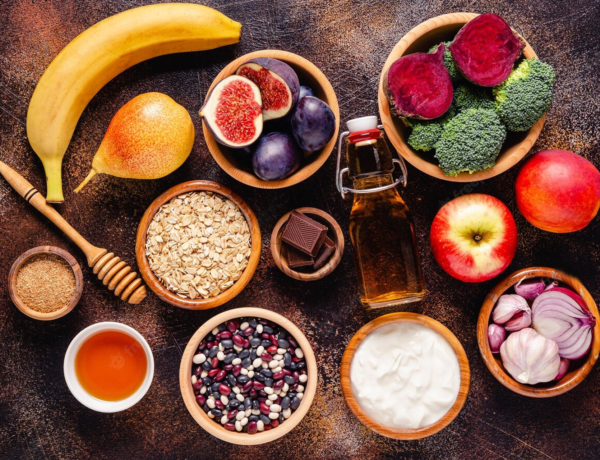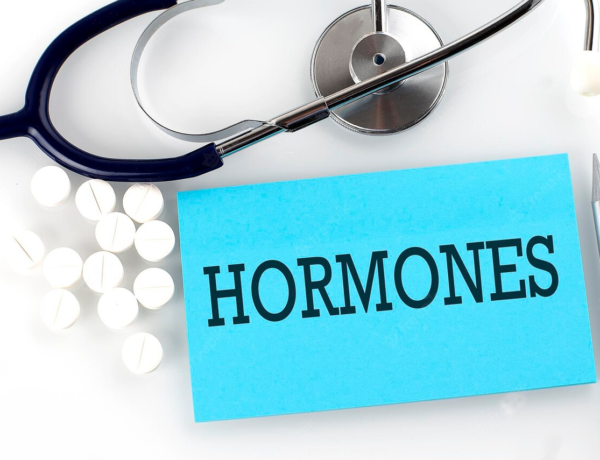According to the CDC, cardiovascular diseases are the leading causes of death in the US of most racial and ethnical groups including African American, American Indian, Alaska natives, Hispanic and White men. For women, heart diseases are second to cancer in the Pacific Islands, Asian American, American Indian, Alaska Native, and Hispanic women. One person dies of cardiovascular disease every 37 seconds in the US. And, 647,000 persons die of cardiovascular diseases per year; that is one in every four deaths.
Cardiovascular diseases cost 219 Billions each year in medical care, medication, and loss of productivity.
The recognized causes are: smoking, excessive alcohol use, being overweight, obesity, diabetes, high blood pressure, high cholesterol, unhealthy diet, and lack of physical activity.
Let’s examine if these possible causes are True or False according to Naturopathic Medicine:
1. High levels of cholesterol:
Cholesterol has been the first to be blamed, and most allopathic doctors are recommending their patients to lower it with statin drugs.
However, nobody talks about the many necessary functions of cholesterol:
Cholesterol is a steroid, mainly produced by the liver (80%). Only 20% comes from diet, and if someone doesn’t eat enough food rich in cholesterol, then the body will go out of his way to produce more. Why?
Because Cholesterol is essential to protect cell membranes permeability and fluidity, in order to make cells waterproof. Without enough cholesterol in cell membranes, we would be just like puddles of water…
– Cholesterol is essential for cells to communicate with each other.
– Cholesterol contributes to repair scars.
– Cholesterol is a precursor to vitamin D.
– Cholesterol is a precursor to steroid hormones: sex hormones (progesterone, estrogens, testosterone), but also adrenals hormones (cortisol, DHEA, aldosterone).
– Cholesterol is a precursor to bile salts, and is required to digest fats.
– Cholesterol is an antioxidant, this is why it will always rise when there is inflammation.
– Cholesterol is needed for the production of the myelin sheet (20%).
– Cholesterol is essential to the brain: 25% of total cholesterol is used by the brain: it helps cognition, memory, sleep, and mood.
– Cholesterol is anti-inflammatory… and has many more functions.
So where is this hypothesis coming from that cholesterol is actually dangerous for health, and should be reduced in order to prevent cardiovascular diseases?
Mostly this theory comes from the work of Ancel Keys, an American nutritionist who conducted “The Study of the 7 countries” in the 1950’s, where he showed the correlation between cholesterol level and cardiovascular diseases. The problem with this study is that it suffered many bias. One of them being that Ancel Keys deliberately eliminated some countries of his study, such as France, because it didn’t fit his theory. France was already known as the “French Paradox”. The French were known to eat more fats, drink more alcohol and suffer les cardiovascular diseases. After the study of Ancel Keys, several clinical trials were conducted on American veterans: they were put on low-cholesterol diets, but the conclusion of these attempts had no significant impact on their mortality, so the “lipid hypothesis” was not validated.
“In 1954, a French researcher named Jean Cottet realized that agricultural workers were intoxicated by the pesticide that they spread in the fields, and that they had low cholesterol levels. A friend of Jean Cottet, a chemist named Michael Oliver, was able to synthesized a drug derived from this pesticide, named Clofibrate.
Testing this molecule on rats and then on patients confirmed its lipid-lowering effect. The World Health Organization started a clinical trial on 15,000 Europeans to assess the effect of Clofibrate on the prevention of myocardial infarction, but the trial had to be stopped prematurely, because the group taking Clofibrate had a higher prevalence od cardiovascular diseases than the placebo group. The pharmaceutical industry however continued to exploit the “Lipid Theory” and to produce and statin drugs, one of them named Lipitor.
On the box of Lipitor, it is written: “this medication doesn’t prevent heart attack”.
The reality is that people who take statins do not in fact suffer from less cardiovascular diseases.
Having a low, normal, or high cholesterol level doesn’t make any difference in the incidence of cardiovascular diseases.
The theory of Cholesterol contributing to cardiovascular diseases is in fact totally FALSE !
We actually need good cholesterol levels to:
– Prevent mental illnesses
– Keep cells fluid and waterproof
– Regulate the immune system
– Make hormones
– Lower inflammation
– Keep muscles strong (heart included)
– Give a sense of satiation; reduce obesity
– Make bile
Where to find cholesterol:
– Caviar is the richest source
– Cod liver oil
– Egg yolks
– Butter
– Cold water fish and shellfish: salmon, sardines, mackerel, shrimps, lobster, crabs.
– Lard and other animal fats: bacon, beef tallow, butter, ghee, goose fat and duck fat…
– Organ meats: liver, kidneys, tongue, and brain.
What is a normal / good level of Total Cholesterol?
Ranges from blood test have been changed over the years. It used to be between 250 to 300. It is now between 150 and 200 max. In functional medicine, we prefer a total cholesterol level to be between 200 and 250, although it could be higher as well. Levels are individual, and will change accordingly depending on age, and specific situation. For example, cholesterol can be higher in case of an injury, an infection, or stress.
2. Saturated fats? FALSE !
Saturated fats have been blamed on the same level as cholesterol rich foods, and the reasons are the same as with the “Lipid theory”.
Saturated fats are mostly found in animal such as butter, cream, cheese, eggs, duck fat, goose fat, chicken fat, bacon fat, beef tallow, and some in vegetable fats such as coconut oil and palm oil. Saturated fats are the most stable fats when cooked, which means that they don’t burn easily and so don’t oxidize as much as unsaturated fats (vegetable oils). Saturated fats are necessary for proper function of the brain and nervous system as well as the immune system; they are necessary to make steroid hormones (adrenals and gonads) and to repair cells. They increase the feeling of satiety, and actually help to lose weight, as seen in specific diets, such as in Ketogenic Diet or GAPS diet. Saturated fats got a bad reputation at the same time as cholesterol did, following Ancel Key’s work, but again this is not true.
“A study of 600,000 people published in the Annals of Internal Medicine in early 2014 found no significant link between intake of saturated fat and cardiovascular disease.”
3. Obesity: TRUE
Obesity is due to the excess consumption of processed carbohydrates and sugar, which leads to permanent glucose overload.
Glucose overload leads to overproduction of insulin. Overproduction of insulin leads to insulin resistance. Too much insulin leads to permanent inflammation. Perpetual inflammation is the cause of atherosclerosis, and thus of most cardiovascular diseases.
4. High blood pressure: TRUE !
High blood pressure has many causes: stress, poor diet, kidney dysfunction, adrenal imbalances, etc. But the most common reason is inflammation, and inflammation is due to the many reasons that we will see below.
5. Excessive salt consumption? FALSE
Unrefined salt such as Celtic Sea Salt or Himalayan salt is absolutely necessary and excellent for health. These salts contain all the minerals used by the body: sodium, potassium, Calcium, magnesium, and more. Refined salts are just sodium, which creates imbalances.
The adrenal glands need salts (minerals) to manage stress.
The stomach needs salt to produce hydrochloric acid. The nervous system needs salt for conduction neurons conductions.
Does salt contribute to increase blood pressure? Yes, in only 10%.
“A meta-analysis published in the Journal of Hypertension concluded that there was no evidence between salt reduction in people with hypertension and people with normal blood pressure and their risk of heart attack, stroke, or mortality ”.
“The Journal of the American Medical Association (JAMA) reported that people who ingest less salt have a higher risk of dying from a heart attack.”
We are told that we eat too much salt and much more than before, but according to the Salt Institute this is not true: people consumed much more salt until the early 20th century because they used salt to preserve food.
6. Alcohol & Sugar: True !
First of all, alcohol IS Pure SUGAR, and alcohol goes directly into the blood stream especially if drank by itself. Sugar has devastating effects on blood vessels. It reduces blood flow circulation. It thickens the blood and makes it sticky, which reduces tissue oxygenation and
thus reduces the nutrient supply to the organs and tissues. Alcohol, and all forms of sugars need to be watched carefully!
They have and still contribute to a vast majority of cardiovascular diseases.
Glucose and corn syrups, which are found in many foods, are of course included.
7. Excess carbohydrates: TRUE
Carbohydrates are also sugar.
Chemically speaking, they are complex forms of sugar, so their assimilation takes longer, and for that reason they have been called complex carbohydrates. They are still however, SUGARS.
So why would they be healthier? They are NOT !!!
They can even be worst for health that simple sugars, and should ABSOLUTELY NOT recommended to diabetic !!!
In order to utilize carbohydrates and burn them, we need a HIGH activity level, such as being a carpenter or a mason. Going to the gym is not enough !
8. Trans-fats? TRUE !
They are the main cause of cardiovascular diseases!
They bloomed after the 2nd World War in the form of margarine and Crisco. They are extremely processed. (show the diagram). They completely distort cells, which creates deformities that we can see in obese people. They are poisons and create chronic inflammation.
They are called Trans-fats or hydrogenated oils or semi-hydrogenated oils.
Published in the Annals of Internal Medicine March 2014:
“32 studies, involving a total of 530,000 participants, examined the association between fatty acid consumption and the risk of coronary heart disease. The analysis confirms that the consumption of TRANS fatty acids is well associated with the risk of coronary heart disease, but not for participants consuming saturated fatty acids. ”
9. Lack of exercise: Not a Cause, but TRUE
Our bodies are made to move, so the lack of movement will participate to cardiovascular diseases. Of course being physically active is a PLUS for preventing ANY disease.
Most importantly, behind all cardiovascular diseases there is a common denominator called Inflammation !!!
Cardiovascular diseases are caused by a chronic inflammatory process! The inflammatory process begins with an injury to the blood vessel created by either viruses, parasites, free radicals, bacteria, allergens, hydrogenated oils, heavy metals, pollutants, sugars, tobacco, alcohol, or even intense stress , etc.
The insulted cells invite the white blood cells to come and to destroy and cleanse the invaders that are present in the arteries.
When the vessel is cleaned, the inflammatory process stops, allowing the cells to repair themselves. It’s a normal process, and must happen dozens of times a day in a healthy person. The problem is when this inflammatory process never stops (because the invaders keep coming), so the wound never heals, and a deposit called plaque develops on the wound. This is called atherosclerosis. Arterial plaques are made up primarily of calcium, fibrous repair tissue, enlarged white blood cells filled with debris, unsaturated fat (74%), and damaged and oxidized saturated fat.
The plaques are like an accumulation of pus under an infected wound. Eventually the crust of the plate breaks, and all of these deposits begin to float in the arteries like lava from a volcano.
The blood clots cause thrombosis, and the arteries get clogged = It’s a heart attack or a stroke.
How to Prevent Cardiovascular Disease?
– Reduce the inflammatory process:
– Eliminate all hydrogenated fats, sugars, corn syrup, processed foods, and allergenic foods (soy, dairy products, gluten, alcohol, etc.)
– Reduce exposure to chemicals: beauty products, household products, chlorine, fluorine, medicines that are absolutely not necessary, heavy metals, etc.
– Reduce / manage stress.
– Stop smoking; stop drugs.
– Reduce sugar consumption.
– Treat underlying infections (dental, virus, bacteria, candida)
– Remove heavy metals
– Repair the intestinal walls and rebalance the intestinal flora.
– Rebalance hormones (sex and adrenal)
– Eat saturated fats (butter, cream, goose, duck, pork) and foods high in cholesterol.
– Exercise and sunbathe!
– Consumption of non-oxidized saturated animal fats and cholesterol levels have nothing to do with cardiovascular disease.
– It is the inflammatory process due to the reasons mentioned above that are the real causes of cardiovascular diseases.










No Comments